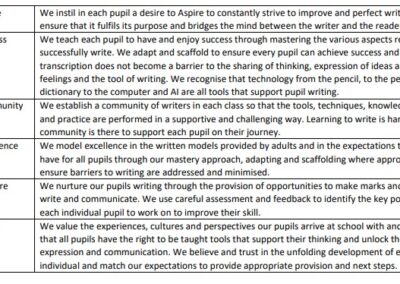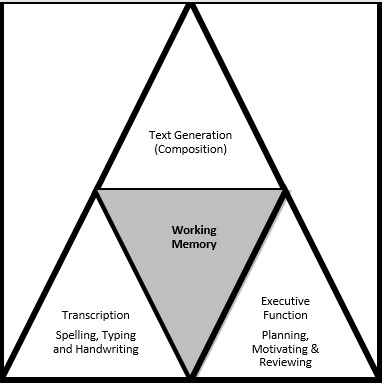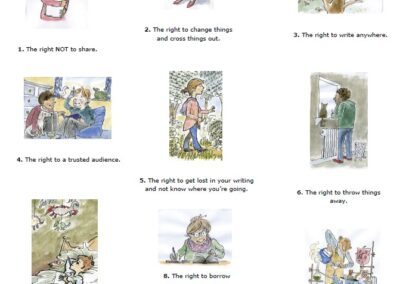Principles and purpose – What is the intent of your curriculum
At Hill View, we believe all children are writers and that writing is an important tool to support thinking and expression. We encourage a love of writing through offering an engaging and purposeful way of teaching writing as well as using strategies such as Talk 4 Writing to enable our children to feel empowered as writers.
Our aim is to provide opportunities for all children, from their individual starting points, to deepen their learning and to be able to apply the skills they have learnt across a range of contexts. Our ASCENT values allow for successful written outcomes that will be achieved through all staff delivering a clear, creative and challenging curriculum where the commitment to the writing process is at the centre.
Through actively involving all learners in the writing process, all children will aspire to be successful in writing regardless of background, gender, race, class or individual need. Writing skills are taught through all areas of the curriculum, children will receive a variety of opportunities to show their excellence, creativity and understanding of the writing process within a community rooted in trust and nature.
We have extensively revised and updated our guidance to the teaching of writing and are busy reinvigorating our approach to writing across the school.
This is detailed below.
We have also updated our guidance for Handwriting.
Entitlement and enrichment – What is the pupil entitlement you wish to outline for your subject?
Our approach to teaching writing is to make sure that the writing curriculum is relevant, supports thinking and expression and enables pupils to develop and refine their skills including aspects that are of interest to them. At Hill View we strive to promote a love of writing through a number of ways which may include focused learning from high quality rich texts, opportunities for free writing, and frequent chances to take part in competitions and to meet and share the expertise of known authors. Pupils learn to externalise their thinking, record and communicate their ideas and refine what has been written within the conventions of the purpose for which it is written across all aspects of the curriculum. Through analysis of authorial choices in texts and books they will have read and, as pupils master different aspects of writing, particularly transcriptional skills, they are taught to consider the impact and interpretation of what they have written upon their reader and audience so that they can come to try, apply and master these features in their own writing. By the end of their primary schooling they will have developed a repertoire of descriptive flourishes, effects and literary devices that inform choices about vocabulary, language and text structure, to ensure each writer has control of and can bridge between the mind of the writer and reader in a powerful, effective or inspiring way.
Breadth and balance – Curate the content of your curriculum
Following analysis of progress data and extensive monitoring the Writing progression of Knowledge and Skills has been completely rewritten to ensure that it is outcome and assessment focused and that this drives the teaching. That it weaves in the school approach to Talk for Writing, the expectations in the National Curriculum programmes of Study and the expectations in the EYFS framework. The full curriculum map and progression of knowledge and skills can be found below.
Progression of knowledge and skills in writing 23-24
Our curriculum is closely integrated with reading and we use high quality texts to support challenging and creative outcomes in all subject areas.
Lets practice your dancing skills
Review and evaluate – Decide what works well and where there is room for improvement
To continue to ensure high quality teaching opportunities and expectations for pupils across the school.
Assessment and outcomes?
Pupils writing is assessed throughout the year through;
– work produced in books
– knowledge of the child
– pupil conferencing
– published work (see display photo)
– classroom observations / learning walks
-moderation with other schools in our academy and local authority

Resources – Source high-quality resources to deliver your curriculum
Our curriculum is closely integrated with reading and we use high quality texts to support challenging and creative outcomes in all subject areas.
https://www.talk4writing.com/resources/
https://www.bbc.co.uk/bitesize/topics/zf2f9j6/articles/z3c6tfr
Review and evaluate – Decide what works well and where there is room for improvement
To continue to ensure high quality teaching opportunities and expectations for pupils across the school.



